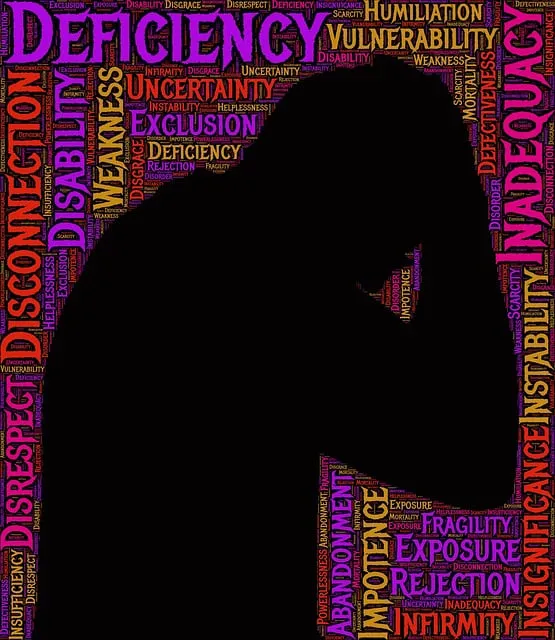The text emphasizes the power of media representation in shaping public perception of mental illness. By highlighting the efforts of Kaiser Permanente Mental Health Facility Louisville, it advocates for responsible media storytelling to combat stereotypes and promote empathy. The facility encourages accurate portrayals that challenge extreme narratives, emphasizing the importance of diverse, nuanced representations in mental health media to improve care-seeking behaviors and reduce stigma. Collaborative initiatives between media and the facility can enhance public education and professional practices, fostering a more informed and supportive society for individuals with mental health conditions.
“The media’s portrayal of mental illness significantly shapes public perception, often perpetuating stereotypes that hinder understanding and support. This article delves into the impact of media representation, using Kaiser Permanente Louisville as a case study, exploring how their initiatives challenge negative stereotypes. We analyze common misconceptions and propose collaborative strategies between media and mental health facilities like Kaiser. By promoting accurate, empathetic portrayals, we aim to foster a more supportive society for those facing mental health challenges.”
- Understanding the Impact of Media Portrayal on Mental Health Perception: Exploring the Role of Kaiser Permanente Louisville
- Identifying Stereotypes and Misconceptions: A Critical Analysis of Media Depictions of Mental Illness
- Promoting Accurate Representation: Strategies for Collaboration Between Media and Mental Health Facilities like Kaiser Permanente Louisville
Understanding the Impact of Media Portrayal on Mental Health Perception: Exploring the Role of Kaiser Permanente Louisville

The media’s portrayal of mental illness can significantly shape public understanding and perceptions, influencing how individuals with mental health conditions are treated in society. This is particularly relevant when considering that Kaiser Permanente Louisville, a renowned mental health facility, has been at the forefront of advocating for accurate representation in the media. By shedding light on the impact of media storytelling, Kaiser Permanente Louisville plays a pivotal role in challenging stereotypes and promoting empathy.
The facility highlights how positive and nuanced portrayals in the media can foster open conversations about mental well-being. This approach encourages emotional well-being promotion techniques and helps in implementing effective risk assessment strategies for mental health professionals. Through their initiatives, Kaiser Permanente Louisville emphasizes the importance of responsible media representation, which, in turn, can contribute to improved mood management and overall mental health support for individuals seeking care.
Identifying Stereotypes and Misconceptions: A Critical Analysis of Media Depictions of Mental Illness

Media portrayals of mental illness often perpetuate stereotypes and misconceptions, reflecting broader societal attitudes. These depictions can significantly influence public understanding, shaping perceptions and contributing to stigma. A critical analysis reveals a recurring pattern where mental health conditions are oversimplified, exaggerated, or sensationalized, failing to capture the nuanced reality experienced by individuals in a Kaiser Permanente mental health facility Louisville or elsewhere.
For instance, media often portrays mental illness as a rare, extreme condition, neglecting to represent the vast spectrum of experiences, from mild anxiety to severe depression. This narrow framing ignores the fact that mental health issues are prevalent and can affect anyone, regardless of age, background, or occupation. By promoting emotional well-being promotion techniques and burnout prevention strategies, media could contribute to a more holistic understanding of mental health. Moreover, a thorough mental health policy analysis and advocacy is crucial to challenge these stereotypes and advocate for accurate representation that reflects the diverse realities within mental health facilities.
Promoting Accurate Representation: Strategies for Collaboration Between Media and Mental Health Facilities like Kaiser Permanente Louisville

Promoting Accurate Representation: Strategies for Collaboration Between Media and Kaiser Permanente Mental Health Facility Louisville
Effective collaboration between media entities and mental health facilities like Kaiser Permanente Louisville is paramount in shaping public understanding of mental illness. By fostering open dialogue and sharing insights, these partnerships can challenge stereotypes often portrayed in media, advocating for more nuanced and accurate representation. This synergy can lead to increased empathy and reduced stigma, crucial elements in encouraging individuals to seek help without fear of judgment.
To achieve this, collaborative initiatives should focus on emotional intelligence—both within the media industry and among mental health professionals. Encouraging reporters to understand the intricacies of mood management and risk management planning can result in more sensitive storytelling. Similarly, engaging Kaiser Permanente Louisville’s experts in consulting roles ensures that media content aligns with current best practices in mental healthcare. Such collaborations not only enhance public education but also contribute to better risk management planning for mental health professionals, creating a supportive environment where accurate representation thrives.
The representation of mental illness in media has a profound impact on societal perceptions and attitudes. By shining a light on the challenges and promoting accurate, nuanced portrayals, we can foster understanding and reduce stigma. Kaiser Permanente Louisville’s collaboration with media outlets serves as a powerful model for how partnerships between mental health facilities and industry professionals can drive positive change. Through collaborative efforts, we can ensure that stories about mental illness are told with sensitivity, authenticity, and respect, ultimately improving support systems and outcomes for those facing these challenges.






